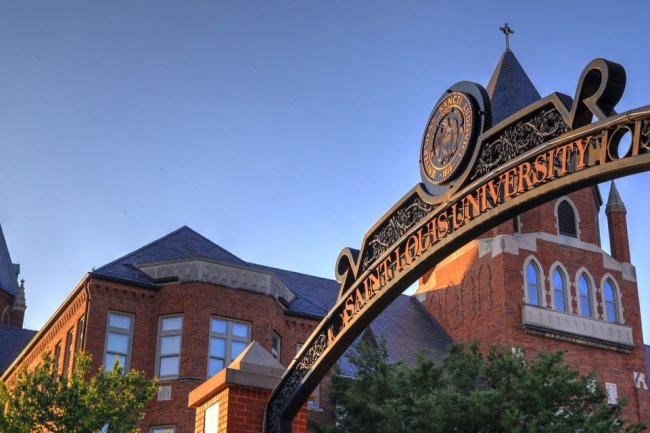Should Biden Still Be Pursuing Student-Loan Forgiveness?
Students debate the president’s repayment plan. Aug. 1, 2023 6:47 pm ET President Joe Biden at the White House, June 30. Photo: LEAH MILLIS/REUTERS Editor’s note: In this Future View, students discuss student-loan forgiveness. Next we’ll ask: “With a recent Gallup poll pointing out that confidence in the U.S. military is declining, with 80% of people 18 to 24 unfit for service, and with recruiting numbers down overall, is the American military in jeopardy? Or is it adapting to these changes? How do you view the military? Have you considered joining?” Students should click here to submit opinions of fewer than 250 words before Aug. 15. The best responses will be published that night. A Casual Disregard for Democracy The Biden administration’s repeated attempts at forgiving student loans demonstrate a broader theme: This administration cares more a


President Joe Biden at the White House, June 30.
Photo: LEAH MILLIS/REUTERS
Editor’s note: In this Future View, students discuss student-loan forgiveness. Next we’ll ask: “With a recent Gallup poll pointing out that confidence in the U.S. military is declining, with 80% of people 18 to 24 unfit for service, and with recruiting numbers down overall, is the American military in jeopardy? Or is it adapting to these changes? How do you view the military? Have you considered joining?” Students should click here to submit opinions of fewer than 250 words before Aug. 15. The best responses will be published that night.
A Casual Disregard for Democracy
The Biden administration’s repeated attempts at forgiving student loans demonstrate a broader theme: This administration cares more about achieving a progressive utopia than respecting its constitutionally constrained responsibilities.
In 2021 then-Speaker Nancy Pelosi, when asked about forgiving student loans, said that “the president can’t do it. . . . That’s not even a discussion.” Yet only a year later, the administration attempted to forgive $430 billion in student loans ahead of the midterm elections via executive order. While student-loan forgiveness in general is a weak policy solution to the Leviathan that is soaring college-tuition fees, the Biden administration’s decision to bypass Congress’s power of the purse is clearly illegal, and the executive order’s survival relies on courts dismissing lawsuits that challenge it on grounds that the plaintiffs lack standing.
For an administration that regularly berates its opponents as threatening democracy, it’s concerning that it would ignore legislative processes in favor of force by presidential action. That reveals its actual views of democracy: It’s convenient and effective when it serves its policy preferences—otherwise it’s fundamentally broken and requires executive action to fix. Look no further than its vicious attacks on the Supreme Court as antidemocratic and calls to destroy the Senate filibuster. Such a warped view of American government will only lead to continued violations of the Constitution.
—Raed Asad, Georgetown University, international politics
It’s Still Not Enough
“For far too long, borrowers fell through the cracks of a broken system,” education secretary Miguel Cardona said on July 14 while approving of the Biden administration’s latest student-debt forgiveness plans. But while the administration deserves credit for its demonstrable attempts toward student-loan forgiveness, the urgency of this issue needs emphasizing.
The Biden administration is not forgiving debt fast enough. As referenced in Justice Elena Kagan’s dissent in Biden v. Nebraska, there are more than 40 million people in America affected by student-loan debt. This latest Biden policy aimed at alleviating debt for 804,000 borrowers affects a meager 2%. That number doesn’t reflect what Mr. Biden promised when he campaigned on the issue.
In every facet of government, Americans see their political systems failing them repeatedly. The Supreme Court’s decision against student-debt relief and the House’s conspiracy-motivated hearings have raised concerns among the American people about the efficacy of their political systems. Confidence in most institutions of government is at an all-time low. President Biden needs to be the fighter he was elected to be and pursue more broad and aggressive executive action.
—Mikael Oberlin, Brown University, economics and political science
Dismissing the Power of American Institutions
The fall of the Roman Republic was preceded by the aggregate effects of small infringements of their social code. Things that didn’t seem like that big a deal but slowly eroded the democratic institutions that upheld the republic.
I generally supported President Biden’s latest student-loan cancellation plan. The increasing price of college has outpaced inflation for the past 40 years. Colleges simply don’t have an incentive to cut prices when government loan programs encourage additional borrowing, and the American consumer is bearing the cost. Still, I disagree with the Biden administration’s choice to cancel debt after Biden v. Nebraska, and I’m bothered by its casual disregard for the authority of the court.
This decision by the Biden administration reflects a troubling bipartisan pattern of disregarding the norms that aid governance. The Justice Department overstepped the Biden v. Nebraska decision with apathetic dismissal. Judicial authority is foundational to the checks and balances that stabilize this country. Thirty-nine billion dollars in loan forgiveness is small potatoes compared with the original $430 billion promised but the symbolic encroachment on court authority represents erosion in respect for our institutions. After all, the court is only as effective as the governing bodies that respect and enforce its decisions.
—Daniel McFadden, Stanford University, history
Why Let Students Borrow So Much?
Instead of bribing potential voters, the Biden administration should prioritize finding solutions to reducing the exorbitant cost of higher education. Over the past two decades, in-state tuition has skyrocketed by 175%, yet there seems to be little national discourse on how to address this issue.
Universities have exploited students’ capacity to borrow from the government to fund their education, leading to unjustifiably inflated prices. Colleges justify these increases by citing additional administrative expenses, hiring more faculty and providing other amenities such as food courts. Are these factors truly necessary for delivering a quality education to the student body?
Schools should be terrified of saddling students with debt that they are unlikely to pay off. Under the Biden administration’s proposal, universities have no incentive to change their predatory practices, and excessive student debt will become a crisis again with the following generation. We’re simply kicking the can down the road. For permanent change, universities need to be held accountable.
—Tomas Denemark, Virginia Tech, industrial and systems engineering
It’s Not Biden’s Job
The president is certainly overstepping his constitutional authority by canceling billions of dollars in student loans. Article I Section 8 of the Constitution clearly states that the Congress has sole authority to authorize spending. President Biden, by originally authorizing $430 billion in student-loan cancellation, and now $475 billion, according to Penn Wharton’s budget model, has exposed the disregard he holds for the separation of powers. As a longtime senator, Mr. Biden should understand the important role that Congress plays in the appropriations process.
In addition to being unconstitutional, canceling student-loan debt is a terrible policy. Nearly 50% of student-loan debt is held by people with graduate degrees. Veterans, truck drivers and waitresses should not be bailing out doctors, lawyers and bankers. For a party that talks all about equity and transferring money from the rich to the poor, Democrats are expending quite a great deal of political capital on a policy that transfers money from the poor to the rich. When you take out a loan, you have an obligation to repay it, whether it’s for college, a car or a home. Instead of wiping that out, we should rethink the societal pressure that we place on young people that college is necessary. Basic economics tells you that when a good becomes a necessity, it becomes inelastic, and the price will skyrocket. That’s exactly what has happened in higher education.
—Jack Harkin, University of Notre Dame, law
Click here to submit a response to next week’s Future View.
Journal Editorial Report: The ruling puts limits on executive power. Images: Zuma Press Composite: Mark Kelly The Wall Street Journal Interactive Edition
What's Your Reaction?

















